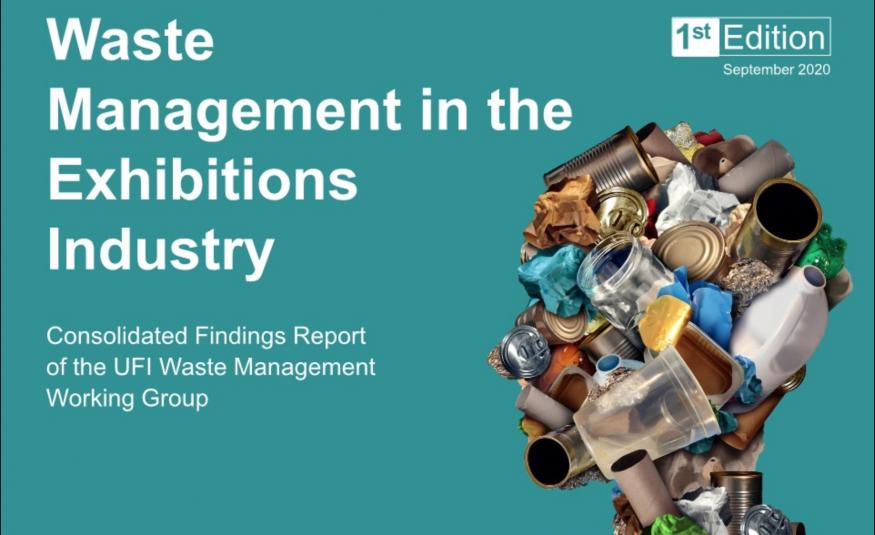Global association of the exhibition industry UFI has released a new report which addresses the issue of waste in the exhibitions industry. This report derives from several UFI actions, including the set up of dedicated regional task forces around the world and the selection of best practices through the 2020 award competition on ‘Best Waste Management’.
Contributions from 40 companies covering 22 countries led to the report findings. Compiled by Greenview, a member of the UFI Sustainable Development Working Group, the report covers conclusions that emerged from the regulatory landscape; common challenges in waste management and solutions; as well as examples of best practices from around the world.
“Waste generation and diversion is a major challenge in the exhibition industry, due to the nature of the business. While many events organising companies and venues are tackling it seriously, we need to go further collectively, and this report will serve as a basis for future action from the UFI Sustainable Development Working Group,” said Philippe Echivard, chief of environment and security at Palexpo (Switzerland) and chair of the Working Group.
In terms of regulatory frameworks, waste management regulations do not relate specifically to the exhibitions industry. And they vary hugely depending on the region, country and even city where the venue or event is located.
The report includes a detailed insight into the European Union legislation aspects relating to Waste Management, prepared by the European Exhibition Industry Alliance.
In terms of common challenges, the most pressing one relates to exhibition stands, with issues ranging from materials used, responsibilities and costs. Another big challenge is based on the need to engage with a large number of stakeholder groups, and more specifically with the exhibitors and visitors, where often there is a lack of awareness and communication on these issues.
The report also highlights the strong achievements from several companies in the industry. Identified through the UFI award competition those initiatives cover the following areas: embedding waste management throughout the event planning cycle, engaging with delegates to reduce waste, using technology and innovation to develop new solutions to waste management challenges, and disposal of waste in a sustainable way via composting, donation or wider community benefit programmes for instance.
“Sustainability is key in today’s world and UFI is continuously positioning the exhibitions industry in this area, where progress can be made. This report provides key insights into the current challenges, and also draws the next steps our industry needs to embrace. Let’s use the current momentum to realign our processes, whenever possible,” said Mary Larkin, UFI president and president of Diversified Communications USA.
In line with UFI’s mission to develop the industry worldwide, the report, ‘Waste Management in the Exhibitions Industry’ is available free of charge at ufi.org/research in the Special Industry Topics section.
UFI will organise two UFI Connects online sessions to present and discuss the findings of the report, on 24 September with a focus on Asia/Pacific and Middle East and on 8 October with a focus on Europe and Americas. Details of programmes and timings, and to register, go to: www.ufi.org/uficonnects.





